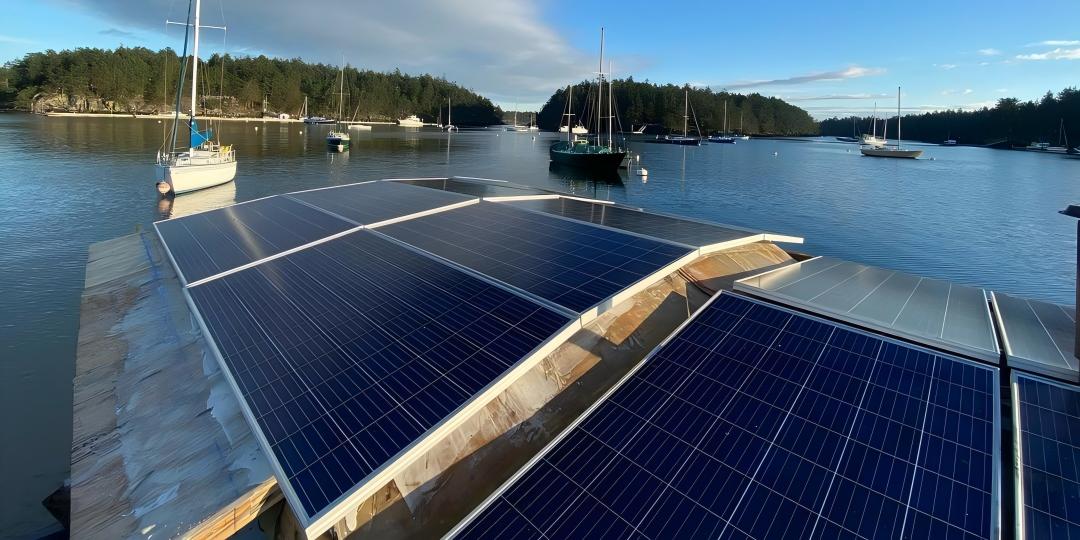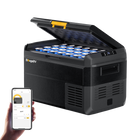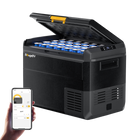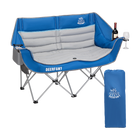How Many Solar Panels Do I Need? A Practical Guide for Outdoor Enthusiasts

Switching to solar energy is an exciting step toward sustainability and energy independence, especially for outdoor adventurers, RV owners, and tiny home enthusiasts. If you're considering adding solar panels to your setup, one of the first questions you'll likely ask is: How many solar panels do I need? The answer depends on your energy needs, lifestyle, and the specific application—whether for an RV, camper, boat, tiny house, or small off-grid cabin.
In this guide, we'll tailor the discussion to outdoor and off-grid scenarios, helping you calculate the right number of solar panels for your setup while maximizing efficiency and portability.
Factors That Influence the Number of Solar Panels You Need
To determine how many solar panels you need, it's important to consider the following key factors:
1. Your Energy Consumption
Start by calculating your daily energy usage. This typically includes powering essentials like lights, a small fridge, or charging devices for outdoor and off-grid setups.
The power consumption of various electrical appliances is shown in the table below.
|
Lighting |
Portable fridge |
Microwave Oven |
Portable AC |
Phone Charging |
Computer Charging |
Coffee Maker |
|
10W |
60W |
1000W |
400W |
10W |
100W |
1000W |
|
100H |
5H |
1H |
1H |
100H |
10H |
1H |
For example, an average RV setup might consume around 20-40 kWh per week, depending on what appliances you use.
2. Peak Sunlight Hours in Your Area
The amount of energy your solar panels can produce depends on the peak sunlight hours in your location. Areas with abundant sunlight, like Arizona or California, may receive 5-7 hours of peak sunlight in one day, while areas with less sun might only get 3-4 hours. Use tools like the NREL PVWatts Calculator to find average sunlight data for your location.
3. The Wattage of Your Solar Panels
Solar panels come in various wattage ratings, which indicate how much energy they can produce under ideal conditions. Higher wattage panels mean fewer panels are needed to meet your energy requirements, which is especially useful for portable setups. BougeRV offers a range of solar panels from 50W to 400W, so you can choose the right option for your energy needs.
Assuming that the duration of local sunshine is 5 hours, the electricity generated by each type of solar panel in a day is shown in the table below.
|
Panel Wattage |
Daily Output (kWh) |
|
100W |
0.5 kWh |
|
200W |
1.0 kWh |
|
300W |
1.5 kWh |
|
400W |
2.0 kWh |
Step-by-Step Guide: How Many Solar Panels Do You Need?
Let's break this down with a realistic example tailored to outdoor and off-grid users:
Step 1: Calculate Your Daily Energy Needs
For an RV setup, let's assume you use the following appliances daily:
Refrigerator: used 24 hours a day, power rating 50W → 50W x 24h = 1.2 kWh
Lighting: used 5 hours a day, total power rating 40W → 40W x 5h = 0.2 kWh
Phone and laptop charging: used 4 hours a day, total power rating 100W → 100W x 4h = 0.4 kWh
Total Daily Energy Use =1.8 kWh/day=1800Wh/day
Step 2: Account for Peak Sunlight Hours
If your location gets 5 peak sunlight hours per day, divide your daily energy use by the sunlight hours:
1,800Wh / 5 hours = 360W
This means your solar panel system needs to produce 360 watts per hour to meet your daily energy needs.
Step 3: Choose Your Solar Panel Wattage
Let's say you use 200W solar panels from BougeRV. To calculate the number of panels needed:
360W / 200W = 1.8 panels
Since you can't have a fraction of a panel, you'll need 2 panels to meet your energy needs.
Step 4: Account for System Losses
Solar systems are not 100% efficient due to shading, dirt, and inverter losses. Adding a 20% buffer is a good rule of thumb:
2 panels * 1.2 = 2.4 panels
Round up to the nearest whole number, and you'll need 3 solar panels to ensure reliable energy production, even on cloudy days.
Solar Panel Recommendations

1. RVs and Campers
Energy Needs: Powering camping lights, a portable fridge, and small electronics.
Recommended Setup: 2 of 200W Hard Solar Panels, such as BougeRV N-Type 200W Bifacial 16BB Solar Panel.
Why Choose This Panel: The 200W Bifacial Solar Panel features advanced 16BB technology, which improves energy efficiency and performance, even in low-light conditions. Instead of having an opaque back, BougeRV bifacial solar panels feature a transparent backside, allowing them to absorb solar energy from both sides, such as direct, refracted, and diffuse sunlight. Its compact size and high power output make it perfect for RV roofs or portable setups, allowing you to enjoy reliable energy while on the road.
2. Boats
Energy Needs: Running navigation lights, a small fridge, and charging devices.
Recommended Setup: 1-2 panels of 200W Flexible Solar Panels, like BougeRV Yuma 200W CIGS Flexible Solar Panel.
Why Choose This Panel: The 200W Flexible Solar Panel is designed with adaptability in mind; its bendable structure can curve up to 360 degrees, making it perfect for irregular or curved surfaces like boat decks. This solar panel delivers efficient and consistent energy production, whether sailing or anchored.
3. Tiny Homes or Off-Grid Cabins
Energy Needs: Providing sufficient electricity for daily living, including powering appliances and lighting.
Recommended Setup: 4-6 panels of 400W High-Wattage Solar Panels, such as BougeRV 400W 10BB Solar Panel.
Why Choose This Panel: The 400W 10BB Mono Bifacial Solar Panel is a powerhouse designed for high energy demands. Its bifacial design allows it to capture sunlight from both the front and back, increasing energy output by up to 30% in reflective environments, such as near snow, water, or light-colored surfaces. 10BB technology offers improved efficiency and durability compared to traditional panels. The robust tempered glass and corrosion-resistant frame can handle extreme weather, making it ideal for long-term use in off-grid cabins or tiny homes. This panel is perfect for users who want to maximize energy production with fewer panels, saving space while delivering consistent power.
4. Portable Use
Energy Needs: Charging phones, laptops, and portable batteries.
Recommended Setup: 1-2 panels of 100W Solar Panels, such as BougeRV 100W Fiberglass Solar Panel.
Why Choose This Panel: The 100W Fiberglass Solar Panel is lightweight, compact, and easy to carry, making it the ideal choice for adventurers and travelers. Its fiberglass backsheet improves flexibility and reduces weight without compromising durability, allowing it to withstand rough handling during outdoor activities. The panel is also highly efficient, converting sunlight into usable energy even in low-light conditions. Pair it with a portable power station, and you’ll have a reliable energy source for charging phones, laptops, cameras, and other small devices, ensuring you stay connected no matter where you go.
Important Note
While these recommendations provide a general guideline, it’s essential to choose the right type and number of solar panels based on your actual usage scenario, available installation space, and electricity consumption needs. Carefully evaluate your energy requirements and the physical space available for installation to ensure you select the most suitable solar panels and setup for your specific situation.
Why Choose BougeRV Solar Panels?

BougeRV solar panels are designed to power your adventures—whether you're camping, RVing, sailing, or living off-grid. Here’s what sets us apart:
-
High Efficiency: With industry-leading solar cell technology (like CIGS, TopCon), capture more energy even in low-light conditions.
-
Durable & Weatherproof: Built to withstand rain, snow, and rugged outdoor environments with corrosion-resistant frames and tempered glass.
-
Easy Installation: Designed for DIYers, our solar panels come with pre-drilled holes and compatible accessories for fast setup on RVs, boats, rooftops, or trailers.
-
Wide Compatibility: Works seamlessly with most 12V/24V batteries, charge controllers, and inverters.
-
Eco-Friendly Power: Reduce reliance on generators and enjoy clean, silent energy wherever you go.
-
Backed by Support: Enjoy peace of mind with our solid warranty and responsive customer service.
Conclution
Determining how many solar panels you need depends on your energy consumption, location, and the wattage of the panels you choose. For outdoor and off-grid enthusiasts, the process is simpler than it seems—just follow the steps outlined in this guide to calculate your needs.
Ready to power your adventures with solar energy? Explore the BougeRV solar panel collection to find the perfect panels for your RV, boat, or off-grid setup. With BougeRV, you can enjoy reliable, efficient, and portable energy solutions for all your outdoor needs. Start your solar journey today with BougeRV!























































































































































































